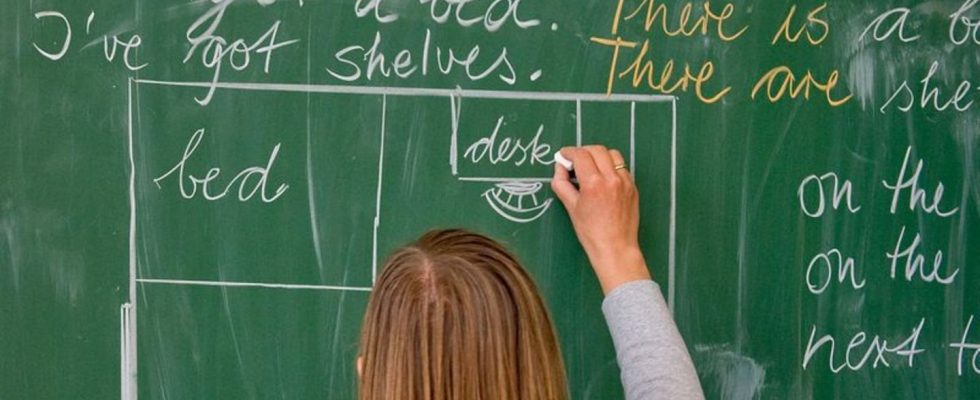Education
Linke paper: abolish school grades and homework
“Determined against the educational emergency” is the name of the Left’s paper that proposes reforms to schools. photo
© Patrick Pleul/dpa-Zentralbild/dpa/Symbolbild
A shortage of teachers, loss of hours, young people without qualifications: There is a lot of discussion about a crisis in the education system. The Left is now making suggestions that are immediately met with criticism.
The left is in favor of homework and Abolish school grades. This emerges from a paper on education policy that party leader Janine Wissler and the education policy spokeswoman for the Bundestag parliamentary group, Nicole Gohlke, want to present in Berlin on Monday. It was available to the German Press Agency in advance.
“Homework and grades should be abolished. Practice and repetition must be done during school time,” it says. The teachers’ association rejects the proposals.
Under the heading “Determined against the educational emergency,” the paper makes various suggestions with a view to the major problems facing the German education system. These include the shortage of teachers, deteriorating reading, writing and math skills among primary school students, too many young people without qualifications and the ongoing problem that success in education continues to depend heavily on background and parents.
Unified school instead of structure
The structured school system – i.e. the division into different school types such as high school, secondary school or secondary school – is an “accelerator for social inequality,” says the paper. The Left therefore advocates “one school for everyone” and shared learning from grades 1 to 10. This was common in the GDR, for example. Grades and homework should be eliminated in order to make “learning without pressure and fear” possible.
The federal government should be responsible for education
According to the proposals, the educational sovereignty of the states should also be abolished. In Germany, each federal state is responsible for its own schools, and the federal government is not allowed to interfere. Agreeing on nationwide standards always becomes a feat of strength. The paper calls for this so-called ban on cooperation to be abolished completely and for education to be enshrined as a community task in the Basic Law.
However, this idea, which has been discussed again and again, has no chance. A two-thirds majority in the Bundestag and Bundesrat is required to change the Basic Law – there will be no consent from the states to hand over their educational sovereignty to the federal government. Because of the state responsibility, federal policy proposals for educational reforms are generally often difficult to implement. This would also apply to the demand made by the Left for the abolition of grades, homework and the creation of a unified school.
100 billion euros for education
Just like the alliance “Educational Transition Now!” From trade unions, educational associations, parent and student representatives, the Left is also calling for a “100 billion euro special fund” for education “to renovate, modernize and support educational institutions”. In her opinion, teachers should be paid the same whether they work at a primary school or a high school. There is also a demand for a “training offensive” for teachers and educators. In addition, psychologists and social workers should be “standard in every team”. However, it remains unclear where the skilled workers required for this will come from. In the search for answers to this, education policy has been going in circles for years.
Teachers’ Association: Abolishing grades is “nonsense”
The President of the German Teachers’ Association, Stefan Düll, rejected the Left’s idea of abolishing grades. That was nonsense, he told the German Press Agency. “The children, just like their parents, want to have the opportunity to compare themselves, on the one hand with their classmates and on the other hand, of course, with the requirements in relation to the educational qualifications they are aiming for.” Despite all the weaknesses, the grading system is designed in such a way that you get the best information about where you can place yourself. Düll says he is a CSU member.

